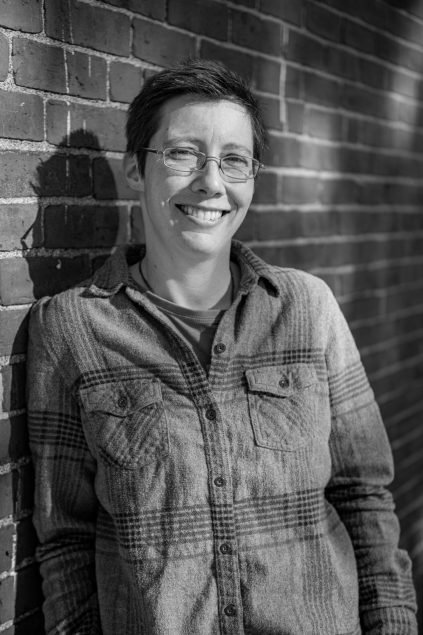Elizabeth Rodgers
Research Graduate Student
Office Location: 6B South Stevens, University of Maine, Orono, Maine 04469
Faculty Advisor: Dr. Bonnie Newsom
Biographical Statement:
I am interested in how people maintain or change their relationships with others and
with their environments through time, and how those connections influence the self and
society. I draw on historical disciplines, mainly archaeology but also history and
historical geography. I am also interested in the meaning of the past in the present and
creative, interdisciplinary approaches to facilitate impactful connections between
communities and their heritage in today’s changing world. I am involved in several
research projects related to these themes:
Connections in and with Wabanaki Pottery Heritage. My dissertation research
examines how Wabanaki ancestors in coastal Maine interact(ed) with former and future
generations in the creation of and interaction with ceramic pots, and how this work can
support the objectives of descendant Wabanaki communities to revitalize pottery
traditions and enhance relationships with traditional cultural places.
Writing in Community. I have the pleasure and honor of working with a community of
scholars who embrace transformative, community-based writing to effect positive
changes in academic practice. Through this form of writing we explore how research
practices that embrace relationships, care, and mutual benefit strengthen the
archaeological community while also producing more rigorous and creative research.
El Niño Resilience in Peru’s North Coast. El Niño is a recurring climate phenomenon
that among other impacts can produce intense rainfall in what is otherwise a desert
environment, with sometimes disastrous consequences. Over the course of thousands
of years of living with and experiencing El Niño events, people developed practices and
technologies that helped to limit El Niño’s impacts and to take advantage of the
opportunities it created. Colleagues at the Climate Change Institute and I have
examined long-term trends in human responses to changes in the El Niño phenomenon.
We have also used historical testimonies of a powerful El Niño in 1578 AD and spatial
analysis to understand how communities in the midst of Spanish colonization drew on
this millennial knowledge to weather these events.
Environmental Change at Pozuelo, South Coast Peru. I am working with colleagues
at the University of Maine, Clarkson University, and the University of South Florida to
reconstruct the paleoenvironment at the site of Pozuelo on Peru’s South Coast.
Archaeological excavations of the mound show a complex cultural history with multiple
building episodes, but the geological layers below the mound are just as interesting,
showing evidence of shifting wetlands, invasions of sand, and even a strong
earthquake. We’re continuing to investigate faults around this site to understand how
tectonic activity influenced the character of, and human interactions with, the
surrounding landscape.
Water Availability in the Peruvian Andes ca. 5000 BP. My master’s research explored
the connections between climate and water in the Andes around 5000 years ago. In the
desert of Peru’s coast, rivers sourced from the mountains are critical for farming and for
daily life. I combined paleoclimate data with information on geology, soils, topography,
and past human settlement patterns to understand how climate-related changes in river
flow might have affected people living and farming at the coast.
Educational and Professional Background
Elizabeth Rodgers graduated from the University of Colorado, Colorado Springs in 2008
with a B.A. in Anthropology and a minor in Geography and Environmental Studies.
Elizabeth came to UMaine in 2019 after spending a decade working in cultural
resources management, which is focused on the identification, evaluation, and
management of archaeological sites, historical sites, and other culturally significant
places and materials. Elizabeth completed her M.S. in Quaternary and Climate Studies
in 2022 and is now pursuing an Interdisciplinary Ph.D.


